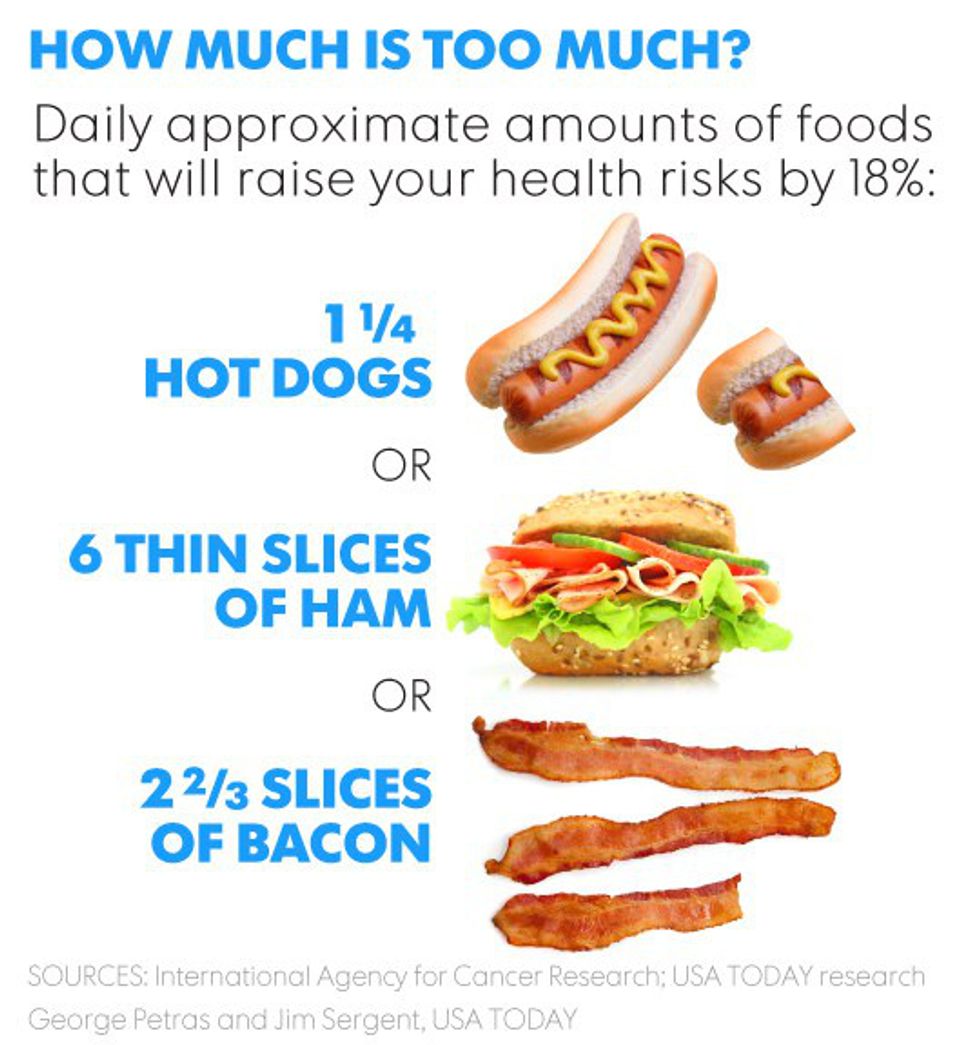There have been controversies pertaining to the meat industry for as long as most of us can remember. The never-ending debates between vegans and carnivores have become a standard part of the world we live in. Generally, we all have our side of what we conclude to be true. But what does one do when a prestigious and respected group such as the World Health Organization comes out with new research that could affect the entire population? Do we just ignore it because it may not be in line with the very beliefs that we hold to be true?
It's time to stop being stubborn and listen to the facts. We need to evaluate what actions we are implementing and food we are consuming as an entire nation. The World Health Organization has recently come out with a statement in which they proclaimed, "Bacon, ham, and sausage rank alongside cigarettes as major cause of cancer."
As a society we continuously roll our eyes at sentiments such as this because "everything gives you cancer!" It is as if we begin to believe this incredibly arduous disease is a made up tale that no one can come in contact with. I hate to break the news, but we are not immortal, and cancer does in fact exist. If we link up the statistics of all the hazards we face to the amount of people that suffer from cancer in the world, we can easily see that maybe these risks we continuously hear about do in fact make sense. It has been estimated that more than one in three people (thirty three percent) will develop cancer at some point in their lifetime. This multitude of the population suffers from cancer because it is a disease that has a copious amount of factors in play.
"Does this mean that my chance of getting cancer is the same if I eat meat and if I smoke?" It depends on the kind of meat you're eating.
The World Health Organization has come to find that they had enough evidence to place processed meats as a group one carcinogen. Processed meat has been found to be linked to causation of bowel cancer.
"What is processed meat exactly?" Processed meat included meats that go through a preservation process that could include smoking, salting or the adding of certain chemicals.
Examples include; hot dogs, ham, and salami. Ever hear people express that they won't eat hot dogs because they "don't know what is even in them"? This is exactly why.
The World Health Organization has placed red meat in group two A, which is under the category as being "probably carcinogenic to humans." As stated by the International Agency of Research on Cancer, red meat has been found to having casual links to prostate and pancreatic cancer.
According to the National Cancer Institute, the amount of deaths in 2015 from rectum and colon cancer are projected to be a staggering 49,700. The IARC has stated that for every 1.8 ounce portion of processed meats one eats daily, their risk of these cancers increases by 18 percent. See the image below from USA Today for portion size reference.
"So is eating meat really as bad as smoking?" Not necessarily.
While processed meat has been placed in the same category as tobacco use in terms of carcinogenic to humans, this category more so evaluates the strength of the scientific evidence, rather than the level of risk, the WHO explains.
Even though eating processed and red meats may not necessarily be as great a cause of cancer as smoking is, it should still raise a red flag for us to look at our habits and what we are putting into our bodies. Cancer is a serious disease that takes over 14 million lives each year (See here for a chilling visual), and every precaution should be evaluated.
(There are many studies showing nutritional benefits of red meats, and this article in no way expressing to cease all consumption.)






















